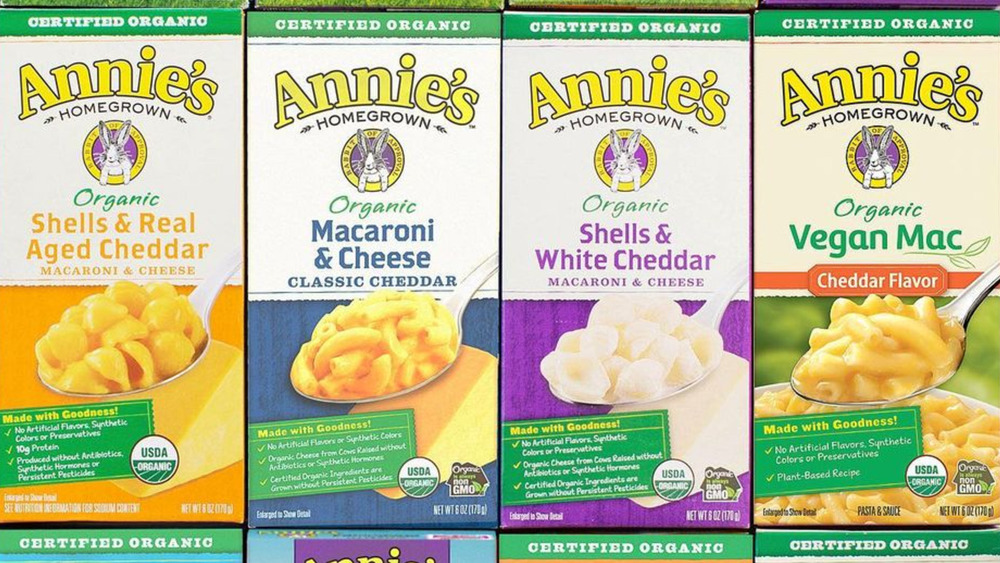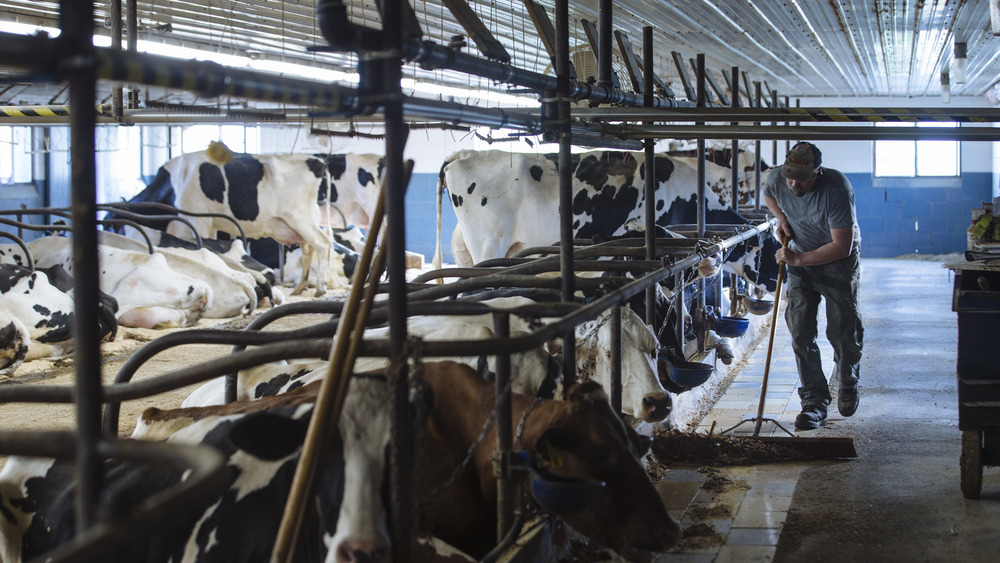The Controversial Ingredient Annie's Has Pledged To Remove From Its Mac And Cheese
With its bunny-shaped pasta and cute rabbit face on every box, Annie's Homegrown macaroni and cheese is a hit with kids. More importantly, it's popular with the parents who have the final say on what families bring home from the grocery store. That's because Annie's Homegrown is organic and has no added sugar or GMOs. Annie's has even kept these high standards – nothing artificial intentionally added – after General Mills bought the company in 2014 (via Mental Floss).
OK, but some artificial ingredients are added to Annie's macaroni and cheese, no matter how careful the brand is about selecting high-quality ingredients. They're called ortho-phthalates (the "ph" is silent), a family of chemicals added to plastics to make them more flexible. These chemicals are found in all kinds of materials, including the conveyor belts and PVC tubing used to move milk and other food products down the complex supply chain of a processed food such as macaroni and cheese (via The New York Times). Phthalates are even in the glues and inks used in packaging (via Safer Chemicals, Healthy Families). The chemical is more likely to leach into foods with a high fat content, such as dairy (and yes, that would include mac and cheese).
Annie's Homegrown recently added a statement to its website saying it will work to eliminate phthalates from its line of macaroni and cheese.
Annie's Homegrown questioned whether customers care about phthalates
Families that have eaten who-knows-how-many boxes of Annie's Homegrown macaroni and cheese over the years might have reason to worry about ortho-phthalates. A peer-reviewed scientific study published Feb. 18 in the American Journal of Public Health linked phthalate exposure during pregnancy to increased risk of attention deficit hyperactivity disorder in children (via Food Packaging Forum). Other studies point to lower IQs, childhood obesity, asthma, and male fertility problems from phthalate exposure.
While the United States does not set any limits on how much phthalates can be in food, Europe does have a standard for the chemical. Annie's Homegrown said in its online statement that any phthalates in its macaroni and cheese fall below the European Food Safety Authority standard. Annie's also said it is working with its suppliers to see what they can do to eliminate ortho-phthalates while acknowledging that the problem is complicated.
While Annie's did make this statement on its webpage, The New York Times reported that the company told a health advocacy group privately that it didn't think phthalates were a big deal in the minds of most customers. "While we appreciate that this is important for some consumers, it is not the focus of most of our consumers during these difficult times as we seek to reassure them about the basic availability and value of our products," a General Mills executive said in a December email to the advocacy group Defend our Health.

